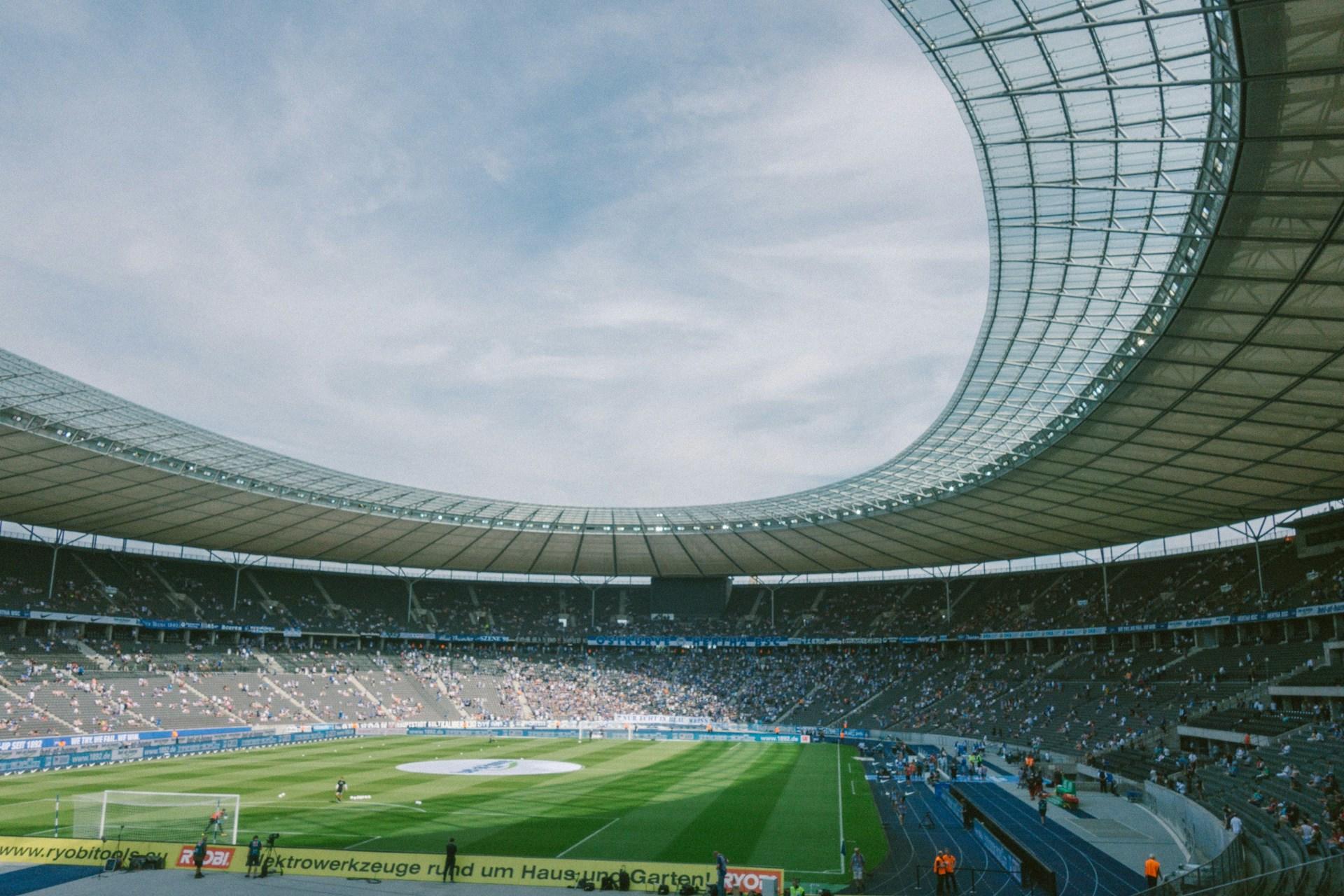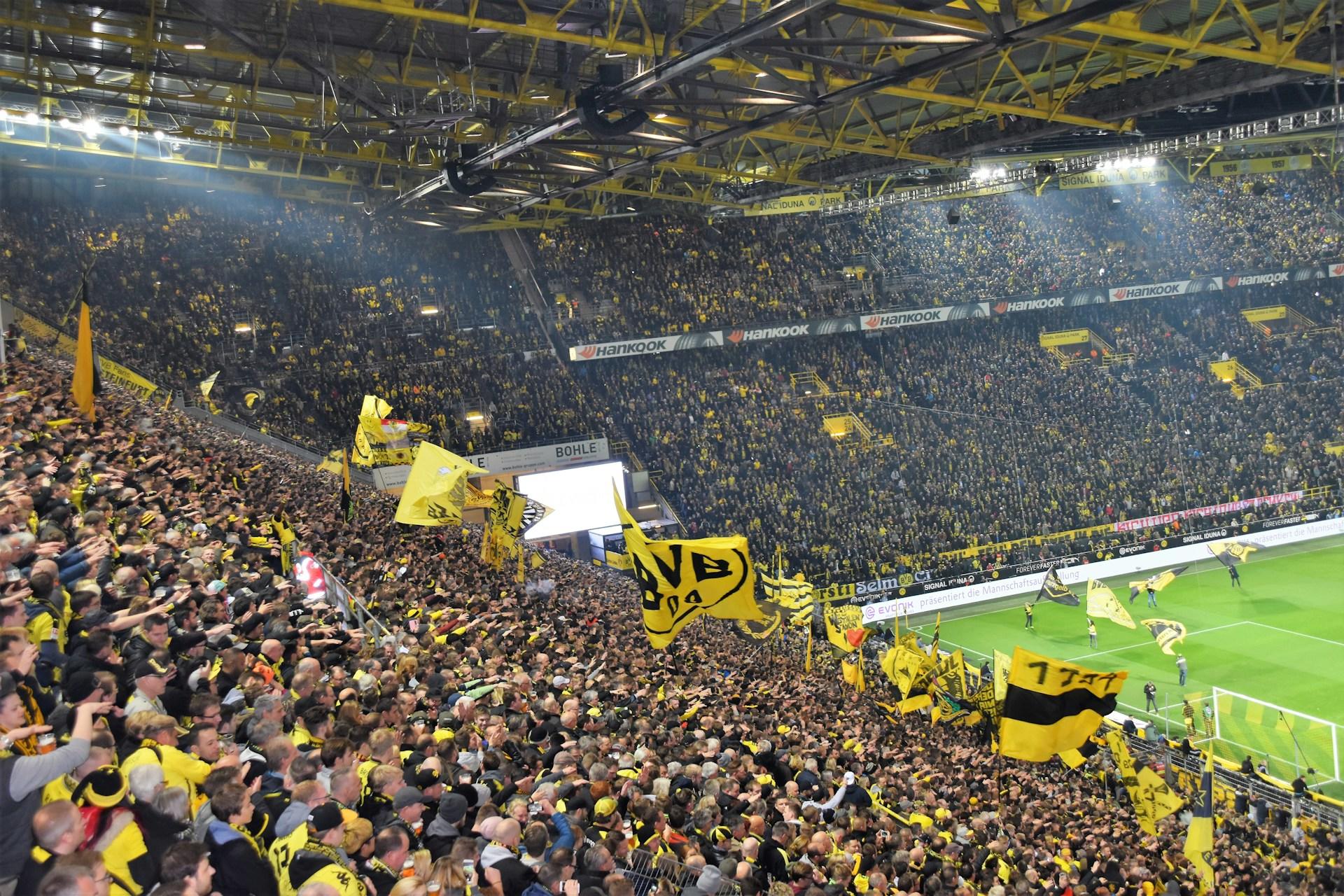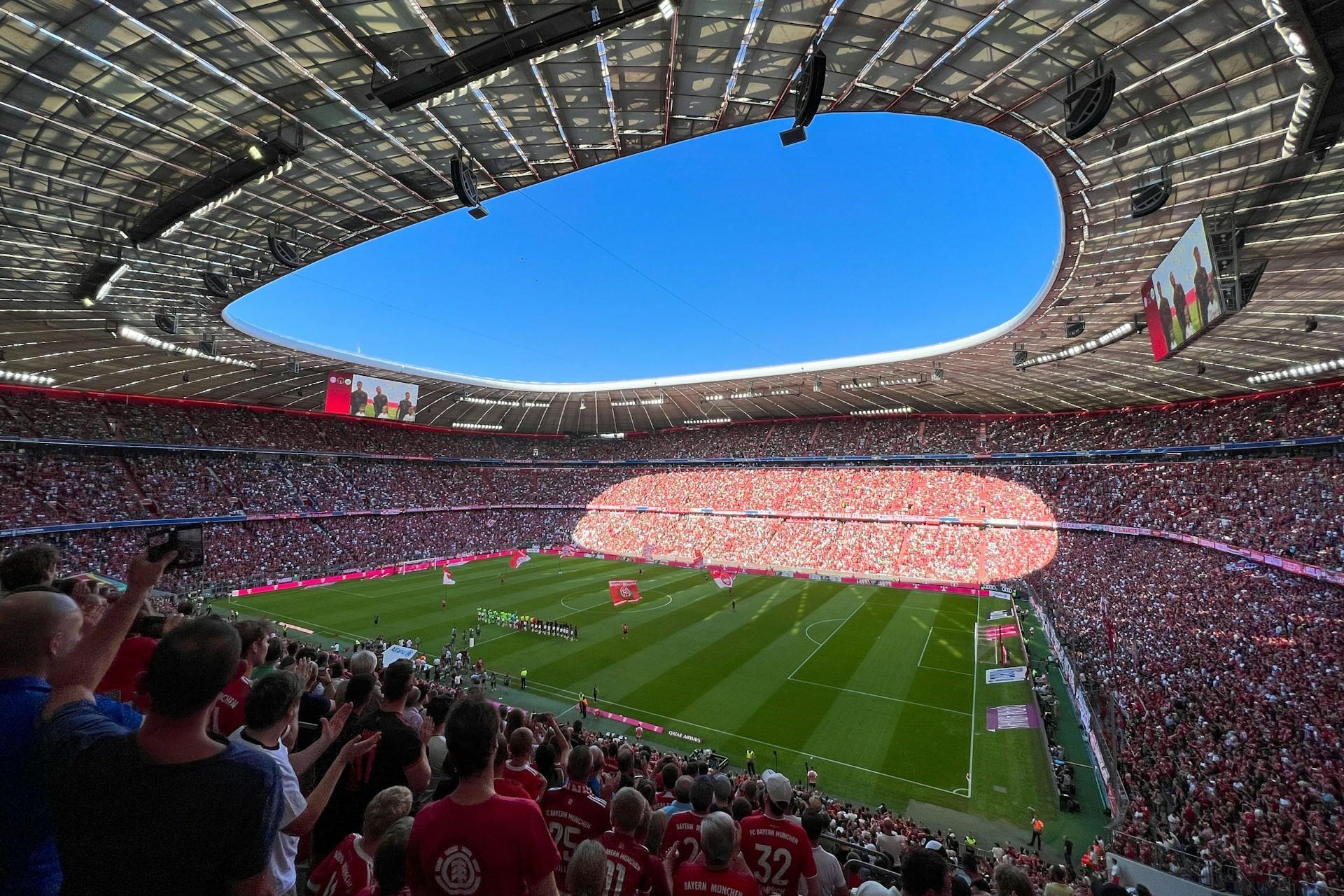"In football, the greatest satisfaction is winning when they say you can’t."
Robert Lewandowski
If you follow soccer or football, you may have heard of Germany's top league, the Bundesliga. If you haven't, don't worry! Today we'll be going through everything you need to know about the pinnacle of German domestic football.

Bundesliga History
The history of football itself dates back to the 19th century in England. With the formation of the English Football Association (FA) in 1863, the rules for the sport were established, making football markedly different from rugby.
Teachers brought association football to Germany in the 1870s. However, the sport in Germany remained at an amateur level while England created the professional English Football League, which now features the English Premier League at the top of the professional football league pyramid.
The German semi-professional leagues would continue until the formation of the Bundesliga in the 1963-1964 season. As this was before Germany's reunification in the late 1980s and early 1990s, only teams from West Germany could apply to be in the league.
There were a total of 46 football clubs that applied and, ultimately, 16 were selected to take part in the league's first season.
In case you were wondering about the meaning of "Bundesliga", it literally means "Federal League". In Germany, "Federal" is commonly used for nationwide or national things since Germany is officially the Federal Republic of Germany or Bundesrepublik Deutschland in the German language.
The Bundesliga Rules and Format
Much like the French Ligue 1, the Bundesliga features 18 teams. These teams compete for the league title between August and May each year.
Each team plays every other team twice: once at their stadium and once at their opponent's stadium or "home" and "away".
The Bundesliga Points System
3 points
1 point
0 points
At the end of the season, the team with the most points is crowned champion.
In the event teams have the same number of points, they are sorted according to goal difference, calculated by subtracting the total number of goals conceded from the total number of goals scored.
Promotion and Relegation
In Germany, like many other football leagues around the world, teams are promoted and relegated within the national league system.
3 teams from Germany's second league, the 2. Bundesliga (sometimes Bundesliga 2), are promoted.
The top 2 teams in that league are automatically promoted to the Bundesliga and the bottom 2 teams in the Bundesliga are relegated to the lower league.
In the case of the third-bottom team in the Bundesliga and the third team in the 2. Bundesliga, these two teams need to play against each other across two matches. The winner will take the 3rd promotion place in the Bundesliga and the loser will play in the 2. Bundesliga the following season.

Essentially, the third-last team is given a chance to defend their place in the Bundesliga while 3rd place in 2. Bundesliga has to earn the place from their opponent.
The 50+1 Rule
Within the German Football League or Deutsche Fußball-Liga, the 50+1 Rule dictates that clubs must hold majority ownership of their football team.
Generally, the 50+1 Rule limits private investment and allows clubs to operate more according to the supporters' and members' wishes rather than becoming solely corporate entities.
Membership fees are generally quite low, ensuring that fans can engage with their football teams and have a voice in how the club is run. Knowing that paying members will also hold the majority means that outside investors can't just buy their way into controlling German football teams.

There are exceptions to this rule and clubs like Bayer 04 Leverkusen are owned by Bayer and VfL Wolfsburg are owned by Volkswagen. This is because any individual or company that has significantly funded a club for over 20 years continuously can own a controlling stake in the club.
While this means that German sides can't use outside investment to boost their prospects in Europe like France's Ligue 1 side Paris Saint-Germain, Bayern Munich still has achieved European success while PSG hasn't.
Red Bull Gives Leipzig Wings
The 50+1 Rule is not watertight, though. In 2009, Red Bull GmbH, the company behind the soft drinks of the same name, bought the playing rights to a team in Germany's fifth tier of football.
The team's name was changed from SSV Markranstädt to RB Leipzig. The club using “RB” as the Bundesliga doesn't allow clubs to sell naming rights.
RB Leipzig supposedly stands for RasenBallsport or "Lawn Ball Sports", but we know what it stands for.
The crest was also changed to feature two red bulls and is almost identical to the soft drink logo. The team plays in the Red Bull Arena, is nicknamed Die Roten Bullen (The Red Bulls), and only has a tiny number of voting members, who are mostly involved with the Red Bull company, anyway.
Other than this, which has made RB Leipzig very unpopular with certain pockets of German football fans, the 50+1 Rule is a special asset of the German Football League and one that makes it different from other leagues, for better or for worse, depending on how you expect football clubs to be run.
Relatively speaking, this controversy pales to some of the footballing controversy that plagued Italy's Serie A, which is otherwise an excellent league.
The Bundesliga Today
While much younger than other top professional football leagues in Europe, the Bundesliga is a quality league for several reasons.
Those familiar with the league may criticise it as being a one-club league (more on Bayern Munich's dominance in a moment), but there are lots of great reasons to follow the Bundesliga and regularly watch Bundesliga matches.
Bundesliga Fan Culture
One product of the aforementioned 50+1 Rule is Germany's football culture. Affordable ticket prices, fan-run clubs, and a passion for the sport make attending football matches in Germany very special, especially at the country's top level of sport.
Attendance is always high at Bundesliga matches and the league often enjoys higher attendance than any other league in Europe. The league below the Bundesliga, the Bundesliga 2, ranks highly for attendance, too.
Any football fan will tell you that a full stadium is better than an empty one and it's not just home fans supporting their local teams. Away supporters regularly travel across the country to see their favourite teams play.

Top-tier German football is very affordable, too. Tickets can be found for less than €10 (around AU$17). Ticket prices are so affordable that in some cases, English football fans travel to and from Germany to attend matches as the total cost is still less than attending some Premier League matches, even when you consider transport and accommodation!
Bayern Munich's Bundesliga Dominance
Since the 2011-2012 season, Bayern Munich has won the Bundesliga every season. They've won a total of 33 league titles, with many seasons including the domestic double, winning both the league and Germany's domestic cup competition, the DFB-Pokal or German Cup in English.
German league titles.
Money talks in football and financially, Bayern Munich are one of the richest clubs in football and significantly richer than clubs such as Bayer 04 Leverkusen, RB Leipzig, Borussia Dortmund, and VfL Wolfsburg.
The distribution of TV rights has also meant that Munich's success has earned them more money, allowing them to sign better players, play better, and continue to win.
For football fans sick of a one-team league, however, it's worth watching the Bundesliga this season as it's looking like Bayern Munich's dominance might be ending.

At the time of writing and over three-quarters of the season done, they sit 2nd in the Bundesliga, 10 points behind Leverkusen. However, anything can happen in football and even following a slump in performance this season, not winning the Bundesliga doesn't mean the party's over.
Here's an excellent video analysis of what's changed at Bayern Munich.
Other Successful Bundesliga Clubs
While the dominance of Munich has made the Bundesliga feel like a one-club league, German domestic football is very high quality and other teams like RB Leipzig and Borussia Dortmund won the German Cup in 2022 and 2021 respectively.
In the 2022-2023 season, Bayern Munich were crowned Bundesliga champions, with Borussia Dortmund sharing the same number of points but ultimately losing out to Bayern's superior goal difference.
The dominance of Bayern Munich in Germany's top league doesn't tell the full story of an otherwise competitive competition.
The number of places available for European competitions like the Champions League, Europa League, and Europa Conference League are decided according to UEFA's coefficients. As Europe's fourth-strongest league, 7 Bundesliga teams will be awarded a place in one European competition or another.
These places are highly coveted by teams and while the first place and league title has been won by Bayern Munich every year in recent memory, the competition for the remaining European places is fierce.
Eintracht Frankfurt also enjoyed success in Europe, winning the 2021-22 UEFA Europa League, defeating the Scottish Premiership team Rangers in a penalty shootout in front of 38,842 fans at the Ramón Sánchez Pizjuán Stadium, which is usually home to the Spanish La Liga side Sevilla.
Summarize with AI:















